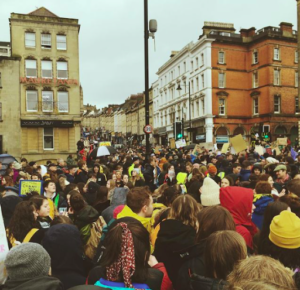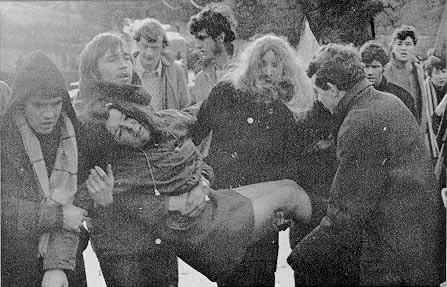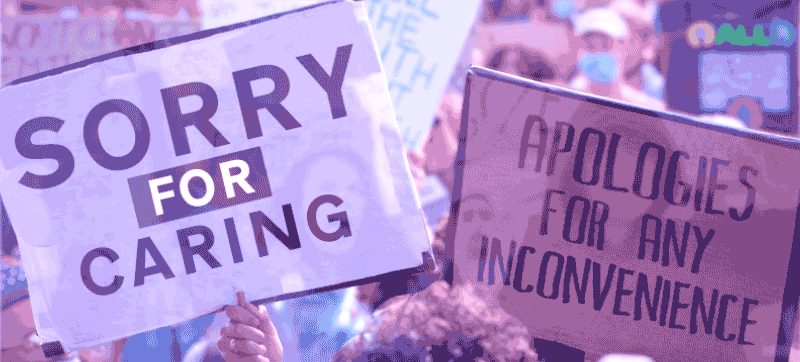What does ‘being activist’ mean to the different generations represented by Cohesive? What are our experiences? If we feel disengaged or disenfranchised, what would move the needle on our individual activism? What would our ‘manifesto for activism’ look like?
Sharon

Activism was part of student life for me at the University of Sussex in the 1980s. It was the era of the Miners’ Strike and anti-apartheid activism. Marches and rent strikes. From this distance I can’t recall the events or even the causes exactly. But I remember a lot of occupying buildings, music and energy and being swept along with it all. Billy Bragg seemed like a permanent fixture, playing benefit gigs every other week. Margaret Thatcher was the baddest of bad guys, along with Barclays Bank for their involvement in South Africa. Activism was as much a part of student life as going to the Library or nightclubs. We believed that it would make a difference, and saw Barclays end their investments in South African Apartheid in 1987. Thirty years later I took my daughter up to join the hundreds of thousands on the anti-Brexit People’s Vote marches in London. I believed that would make a difference too. Sadly it didn’t.

The last big activist event I took part in was the youth climate strike just before the pandemic hit. Greta Thunberg came to Bristol, and spoke alongside some great young people. Loved their energy and the feeling of being part of a crowd that is determined to make change happen. But a couple of weeks later we were all in lockdown, everything stopped and the world changed.
Jemma

For me, activism can toe the line of being performative. I’m not talking about the huge changes activists are trying to make happen or diminishing it in any way, but the era of social media drives a certain cynicism to everyone’s actions. You see homeless people being filmed by vloggers and millions upon millions praise that one person for doing something nice, yet that homeless person remains in the same position. You see companies pledging donations or employee time for a cause like climate change and yet billionaires are getting richer (Jeff Bezos looking at you) and their employees are being strangled by red tape and poverty whilst they continue to play a part in fueling global warming. It’s enough to dishearten even the staunchest of supporters.
Activism does work but a new model needs to come into fruition to help bring about change in a social media orientated world.
Hector

I have to admit I have never been an activist. This is not just because I am white, middle class, and now middle aged.
I think part of it is that I am just not that interested in politics. This is despite the fact that I studied at The London School of Economics, arguably the most activist university in Britain. It was during the Thatcher years and there were lots of marches about Poll Tax and student fees I could have gone on. But I wasn’t that interested and I was also instinctively wary of marches.

I was wary because I grew up in Northern Ireland at the height of The Troubles and there was a definite blur between activism and terrorism. After 20 years of peace, The Troubles were reignited in 1969 when a non-sectarian civil rights march was mishandled by the police. People got shot during marches and protests where I grew up. The causes that normal teenagers were into in my day like CND, Amnesty International, and Greenpeace, never even registered in Northern Ireland.
So although I’ve never been an activist I do believe activism is a good thing. The right to peacefully protest is a mark of a civilised safe society and should be resolutely cherished.
Liz

When I think of activism I think of change. I’m proud to say I do what I can, when I can. I use the privilege I have to make whatever difference I can. I’ve protested for LGBTQ+ equality, Black Lives Matter, women’s rights, you name it – but the one thing I will never condone is putting the livelihoods of those I am trying to support and liberate at risk.
Activism which causes major disruption can turn people away from your cause. If you’re actively trying to prevent something, that’s amazing, but there are always ways to do it which will prevent your cause from being tarnished. Blocking the M4 because you want to “protect the planet” is not only making it worse (hello idle car emissions), it’s damaging the cause itself. Sometimes making a scene is important, and sometimes you have to piss a few people off to make a difference, but maybe focusing on things that actually matter would be a better way forward, for everyone. Change is purpose, but change should never be tarnished the way it has been for some causes. I guess I just hate the idea of being stuck on the M4 for hours too…




What do you think?